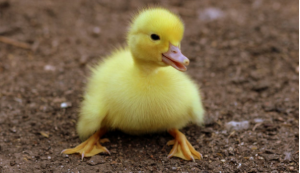‘Smallholding’ is a term that refers to the act of running a small farm-like enterprise, with your own land registered as a small business/operational outfit operating under a small-scale agricultural approach. Usually, smallholdings refer to those utilizing subsistence farming measures or even simple, family-led means ran in a not-for-profit manner. For instance, a family who enjoys raising sheep and pigs on their rural land but only sells them or the acquired meat and other goods in a non-commercial capacity could be considered a smallholding.
Many people, when escaping to the countryside later in life, weigh up the value of running a smallholding. It’s very much a lifestyle and not just a small, humble, not always profitable enterprise. If you find that this is an approach you would like to take, then it’s nice to think of what steps you need to get there.
While you should definitely seek grounding advice from longer articles and authoritative sources that relate to your country, we can certainly provide some worthwhile tips that will help you run your smallholding in a much easier and effective manner. Let’s consider some of that advice, below:
Invest In Reliable Storage Areas & Sheds
A reliable storage area and shed, like an industrial shed with all the room that can bring for example, can be a key investment. This can keep your farm equipment safe, your goods (like feed and straw) stocked in a dry environment, as well as any other equipment you may need, like horse trailers and ride-on tractors. Unless you have an area already planned for this, you may be surprised how constant weather exposure can denigrate your assets otherwise. It’s always best to protect your investments.
Inventory Your Produce
It’s good to manage the metrics regarding what you produce, even if this is undertaken in a hobbyist capacity. This way, you’ll be able to track how certain animals are performing, as well as making sure you notice fluctuations in the health of certain animals you may have. Additionally, keeping diligent records will help you apply all the vaccinations and medications you need appropriately, as well as reporting the first sign of an issue which can, in some cases, lead to a governmental health response. A smallholding might be for fun, but it does require a key logistical effort to plan correctly – so don’t ignore that advice.
Get Involved With Your Local Farming Community
It might seem like smallholdings are in direct competition with all agriculture around them, but that’s not usually the case. Either you’ll have specialized or what you have to offer won’t be enough to pick up any larger clients, so selling to the local area or not selling at all won’t cause any undue friction. But befriending the local farmers can truly help you. From purchasing land from them to buying or selling cows or other livestock, to gaining help if some of your animals escape or if you need to ask questions, being friendly with those around you can be very worthwhile and can help you feel more supported in the community. Farmer’s don’t bite usually, so give it a try!
With this advice, we hope you can feel a little more confident about running your dream smallholding.
Note: This is a collaborative post


No Comments